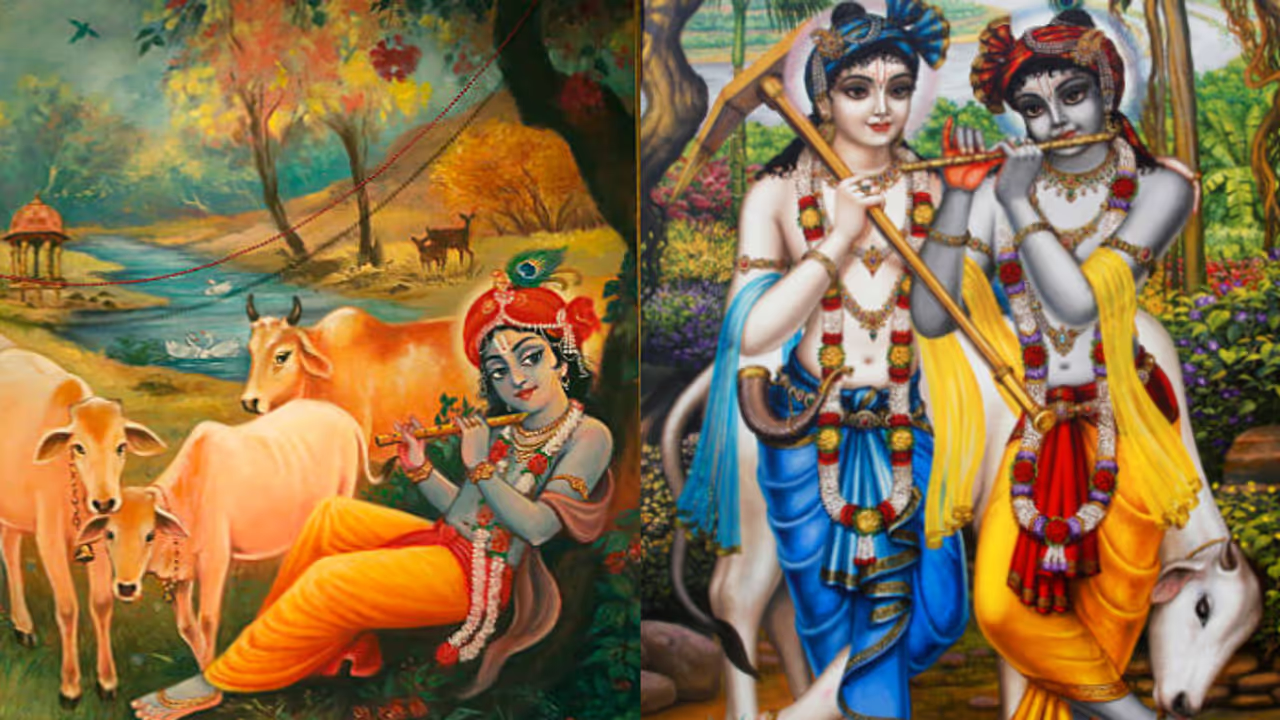Gopashtami is one of the most significant and joyous events in the life of Lord Shri Krishna. This festival is observed on the eighth day of the lunar fortnight in the month of Kartik.
Gopastamipuja, also known as Gopashtamivrat, is observed on the eighth day of the waxing moon in the month of Kartik (Kartik Shukla Ashtami). The key rituals of the day include Sri Krishna Puja and Go Puja (worship of cows). According to tradition, it was on Gopashtami that Sri Krishna and his brother Balarama were deemed ready to take on the responsibilities of cow herding, having previously been caretakers of calves. This year, Gopashtami is being celebrated on Saturday (Nov 09).

According to the Srimad Bhagavatam, Lord Shri Krishna, at the tender age of six, would walk barefoot while herding cows. Even at that young age, His footprints were not fully formed. Krishna found immense joy when the sacred dust from the cows' hooves settled on Him.
As He wandered barefoot, He left the divine impressions of his lotus feet in the dust, spreading his presence throughout Vrindavan. It is said that these footprints are what bestowed Vrindavan with its enchanting and radiant beauty.
How it is celebrated?
On this sacred day, cows are worshipped with great devotion. Early in the morning, people bathe the cows, adorn them with flowers and fragrances, and dress them in colorful attire. They then offer fodder and perform parikrama (circumambulation) around the cows, accompanying them for a short distance.
In the evening, when the cows return, the time is considered auspicious and is known as godhuli muhurat. The cows are once again welcomed and worshipped during this time. Devotees bow at their feet, seeking blessings for a healthy and prosperous life. Many also give donations to gaushalas (cow shelters) as an act of charity.
Objective of Gopashtami
The primary purpose of Gopashtami is to protect and serve cows, reflecting their cherished place in Lord Krishna's heart. Cows should be nurtured in a safe, loving, and caring environment. It is believed that in places where cow seva is practiced, Lord Hari showers boundless grace. Our well-being is deeply tied to the blessings of cows, who bring prosperity and foster spiritual harmony in their surroundings.
Whether residing in cities or villages, consuming the milk of indigenous cows and using dairy products made from it also contributes to their welfare. In doing so, we not only honor this sacred service but also support the nation's economy.
Cows are considered to be the abode of 33 gods and goddesses in Hindu tradition, and worshiping them is believed to eliminate all misfortunes from our lives. According to Hinduism, cows embody spiritual and sacred qualities, representing a divine form on earth. It is also believed that by worshiping cows on this auspicious day, one can invite happiness and prosperity into their lives.
